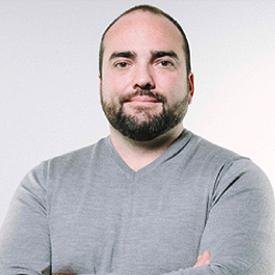rMark Bio Personalizes Academic and Clinical Partnership Research
The platform uses artificial intelligence to recommend key opinion leaders that align with users’ strategic business interests.

Academic and clinical partnerships are critical for pharmaceutical companies developing new products. It’s not hard to identify the handful of top opinion leaders in any given therapeutic area, but, until now, finding the bulk of the physicians and scientists working in a particular area – even ones with a considerable scope of influence – has been challenging. The process today involves little more than keyword search and filtration. rMark Bio modernizes this process, applying artificial intelligence to overhaul the identification of potential partners.
rMark Bio feeds users’ internal data, such as CRM information, budgets, investments, and clinical trials, into their own intelligence engine backed by AI technologies including IBM’s Watson and Google’s TensorFlow. After processing this information, rMark curates a personalized list of key opinion leaders (KOLs) for the user to validate and engage.
“Global health data is great for mining, for looking for KOLs, but it’s very generic in its results,” rMark CEO Jason Smith said. “The only way to get that highly tailored is to understand the end user and the organization itself.”
“The only way to get that highly tailored is to understand the end user and the organization itself.”
At the Medical Affairs Strategic Summit (MASS) West 2016 in September, Smith demonstrated the effect of rMark’s proprietary personalization techniques. A generic search for Type II diabetes KOLs returned more than 7,000 results. Applying generic filters like, “Only KOLs who aren’t already in my database” reduced the count to 1,311. But through personalization, Smith said the platform reduced the number of relevant KOLs to 52 — a field large enough to be useful, but small enough that the company could individually engage and validate its constituents.
rMark launched on September 15 and onboarded its first beta customer in October. Smith said the process will take between four and six weeks for the initial beta users, which gives rMark time to integrate with the users’ own proprietary data.
“The nice thing is the more we do, the less and less manual it gets and the faster it becomes,” he said. “So the connectors between these proprietary databases, while unique the first time, won’t be the second time. While the data may be different, the database connectors are not.”
“The nice thing is the more we do, the less and less manual it gets and the faster it becomes”
Smith is looking for three to five beta users, depending on the sizes of the organizations. He added that one requirement of the beta program is that rMark must be allowed to interface with the user on a quarterly basis.
“We know we have the right key features that provide value today,” Smith said. “But we also know each organization is a little different in what they need to translate that data to business action. With this beta program, we’re willing to do some of that work to tailor even the front-end and the features of that solution uniquely to them.”
Smith said he believes this “white-glove service” will always be a component of rMark Bio’s mission, even as the company scales and automates more of its onboarding protocol. After all, a personal touch is fitting for a company that champions personalization.
For more on Smith, visit his LinkedIn profile.


